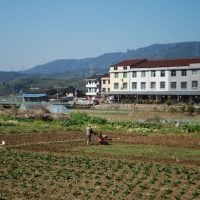The Canadian International Food Security Research Fund (CIFSRF) is a pivotal initiative aimed at addressing the pressing challenges of food security in developing countries. Established by the Government of Canada, CIFSRF supports innovative research that seeks to enhance food systems and improve the livelihoods of vulnerable populations. The fund emphasizes collaboration between Canadian researchers and their counterparts in developing nations, fostering a two-way exchange of knowledge and expertise.
This collaborative approach not only enriches the research process but also ensures that the solutions developed are contextually relevant and sustainable. CIFSRF focuses on a variety of themes, including agricultural productivity, nutrition, and climate resilience. By funding projects that explore these areas, the fund aims to create a comprehensive understanding of food security issues and develop actionable strategies to combat them.
For NGO professionals, understanding the scope and objectives of CIFSRF is crucial for aligning their proposals with the fund’s mission. Engaging with local communities and stakeholders is also essential, as their insights can significantly enhance the relevance and impact of proposed research initiatives.
Eligibility and Application Process
Eligible Applicants and Partnerships
Eligible applicants include Canadian institutions, such as universities and research organizations, as well as international partners from developing countries. Collaborative projects that involve multiple stakeholders are particularly encouraged, as they can leverage diverse expertise and resources.
The Role of NGOs in the Application Process
NGOs play a vital role in this ecosystem, often acting as facilitators between researchers and local communities, ensuring that research is grounded in real-world needs. The application process for CIFSRF is structured yet flexible, allowing applicants to present their ideas in a clear and compelling manner.
The Application Process: From Concept Note to Full Proposal
The application process typically begins with a concept note, which outlines the proposed research’s objectives, methodology, and expected outcomes. This initial submission is an opportunity for applicants to demonstrate their understanding of food security issues and how their project aligns with CIFSRF’s goals. Following a successful concept note review, applicants are invited to submit a full proposal, which requires more detailed information about the project design, implementation plan, and budget. It is advisable for NGOs to engage in preliminary discussions with CIFSRF representatives to clarify any uncertainties regarding eligibility or application requirements.
Crafting a Strong Research Proposal
A well-crafted research proposal is the cornerstone of securing funding from CIFSRF. To create a compelling proposal, it is essential to articulate a clear research question that addresses a specific food security challenge. This question should be grounded in existing literature and demonstrate an understanding of the local context.
Engaging with community members during the proposal development phase can provide valuable insights and ensure that the research is relevant to those it aims to benefit. In addition to a strong research question, a successful proposal must outline a robust methodology that details how the research will be conducted. This includes specifying data collection methods, sampling strategies, and analytical techniques.
It is also important to highlight any innovative approaches or technologies that will be employed in the research process. Furthermore, clearly defining the roles and responsibilities of all project partners can enhance collaboration and accountability throughout the project lifecycle. Real-world examples of successful proposals often showcase interdisciplinary approaches that integrate social sciences with agricultural research, demonstrating the multifaceted nature of food security challenges.
Budgeting and Financial Considerations
Budgeting is a critical component of any grant proposal, and CIFSRF is no exception. A well-prepared budget not only reflects the financial needs of the project but also demonstrates fiscal responsibility and transparency. When developing a budget for CIFSRF, it is essential to provide a detailed breakdown of costs associated with each aspect of the research project.
This includes personnel expenses, travel costs, equipment purchases, and any other relevant expenditures. Moreover, it is important to consider potential sources of co-funding or in-kind contributions from partner organizations. Highlighting these additional resources can strengthen your proposal by showcasing a commitment to collaboration and shared investment in the project’s success.
NGOs should also be mindful of CIFSRF’s funding limits and guidelines when preparing their budgets. A common pitfall is underestimating costs or failing to justify certain expenses; therefore, providing clear rationales for each budget item can enhance credibility and increase the likelihood of approval.
Review and Approval Process
Once proposals are submitted to CIFSRF, they undergo a rigorous review process designed to assess their quality and alignment with the fund’s objectives. This process typically involves both internal reviews by CIFSRF staff and external evaluations by subject matter experts. Understanding this review process can help NGOs tailor their proposals to meet specific criteria that reviewers prioritize.
Feedback from previous applicants indicates that clarity and coherence are paramount during the review stage. Proposals should be well-organized, with clearly defined sections that allow reviewers to easily navigate through the document. Additionally, addressing potential risks and outlining mitigation strategies can demonstrate foresight and preparedness.
Engaging with past CIFSRF grantees can provide valuable insights into common pitfalls and best practices for crafting successful proposals.
Reporting and Accountability Requirements
Regular Progress Reports
Regular progress reports are typically required at specified intervals, detailing achievements, challenges faced, and any adjustments made to the original plan.
Final Reports and Lessons Learned
In addition to progress reports, final reports are essential for summarizing the project’s overall impact and lessons learned. NGOs should approach reporting as an opportunity to reflect on their work and share insights with stakeholders rather than merely fulfilling a bureaucratic obligation. Engaging with local communities during this process can provide valuable feedback on the project’s effectiveness and inform future initiatives.
Fostering a Culture of Accountability and Continuous Learning
By fostering a culture of accountability and continuous learning, NGOs can enhance their credibility with funders like CIFSRF while contributing to broader discussions on food security solutions. In conclusion, securing funding from the Canadian International Food Security Research Fund requires a strategic approach that encompasses understanding the fund’s objectives, navigating eligibility criteria, crafting compelling proposals, budgeting effectively, engaging with the review process, and adhering to reporting requirements. By leveraging these actionable tips and real-world examples, NGO professionals can enhance their chances of success in obtaining grants that contribute meaningfully to global food security challenges.









































